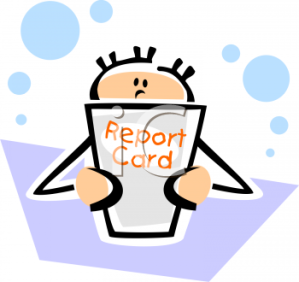 A generation is a long time for subtle changes to become glaringly obvious; especially, in something as fundamental as education. Gone are the days of text books that were paper and print, notebooks that had all the questions and answers you needed to memorize to clear exams and move to the next grade. All of us understand and appreciate that we have moved to a digital World and Tech-101 is a subject that children study in middle school to get familiar with how to work online. Even how we talk to children at home has changed so much that parents need to be trained how to have learning conversations with their children. I was at one such talk at school last week. Here is what I learnt:
A generation is a long time for subtle changes to become glaringly obvious; especially, in something as fundamental as education. Gone are the days of text books that were paper and print, notebooks that had all the questions and answers you needed to memorize to clear exams and move to the next grade. All of us understand and appreciate that we have moved to a digital World and Tech-101 is a subject that children study in middle school to get familiar with how to work online. Even how we talk to children at home has changed so much that parents need to be trained how to have learning conversations with their children. I was at one such talk at school last week. Here is what I learnt:
Knowledge, skill and understanding. Thankfully some things as basic as knowledge still seems to be what the teachers at school want to share with the children. But it does not come from text books alone. Knowledge is the easiest to quantify and assess. How the child uses the knowledge gained in a classroom setup, to develop a skill, is the challenge in today’s world. Physical skills like dribbling a ball at the basketball court is easy to quantify. But a skill like research is difficult to assess or quantify but can be important for life! Also, Language is a skill that can be pared off if not revisited regularly, especially over a school break. Children may remember the vocabulary learnt in a new language but to be able to use it and be bilingual, he needs to be at it consistently.
 Learning and Consolidating When a child learns new concepts that has not been taught in the previous years, then it qualifies as learning. At times though, some concepts learnt in the previous grades, are revisited again in higher grades for a deeper understanding of the basic concepts learnt. That is what helps the child consolidate what he already knows. Learning is making new connections while consolidating is revisiting learnt concepts. Especially in Math a child needs to consolidate basic concepts, to go to the next level of skill and understanding. Before the child has consolidated his learning, if he is taught another new concept, he will never reach a deeper level of understanding of any of the concepts learnt and will only skim across the top. Being reflective The true test of what a child knows and understands is when he is able to make connections of the concepts learnt at school, to different contexts in the real world. To be able to do that it is important to encourage the child to be reflective. As parents, we are responsible to help the child reflect on what he learns at school every day.
Learning and Consolidating When a child learns new concepts that has not been taught in the previous years, then it qualifies as learning. At times though, some concepts learnt in the previous grades, are revisited again in higher grades for a deeper understanding of the basic concepts learnt. That is what helps the child consolidate what he already knows. Learning is making new connections while consolidating is revisiting learnt concepts. Especially in Math a child needs to consolidate basic concepts, to go to the next level of skill and understanding. Before the child has consolidated his learning, if he is taught another new concept, he will never reach a deeper level of understanding of any of the concepts learnt and will only skim across the top. Being reflective The true test of what a child knows and understands is when he is able to make connections of the concepts learnt at school, to different contexts in the real world. To be able to do that it is important to encourage the child to be reflective. As parents, we are responsible to help the child reflect on what he learns at school every day.
Assessing, reporting and ability grouping In International schools, they conduct baseline assessments in every subject to assess the ability of the student to grasp concepts and stream them into bands – Who has already learnt the concept, who is approaching the learning and for who the concept is new. It is done very discreetly; otherwise it can be very damaging to the student’s confidence in the subject. If students who are very good at concepts were grouped together and asked to ‘fly away together to the next level’ then it will make the rest of the class feel unworthy of being in the same grade. Based on the results of such assessments, students are challenged to the level of ability they possess in that subject. They will still remain in the mixed group. This helps the child build confidence in the subject and he begins to perform better at his level, instead of being pitched against the best in the class. ( I wish this was possible to follow in the Indian school system)
 Schools worldwide, have begun to regard report cards as a snapshot at a specific point of time. It does not give the true picture of the child’s ability in a subject. Ongoing learning is the way to assess progress. It is predicted that report cards will soon be phased out and will be replaced by online portfolios. It is anyway not advised to judge the student based on the grades achieved on the report card. It does serve a purpose though. It helps us find out what the barriers in learning are and why the child has not accessed the learning.
Schools worldwide, have begun to regard report cards as a snapshot at a specific point of time. It does not give the true picture of the child’s ability in a subject. Ongoing learning is the way to assess progress. It is predicted that report cards will soon be phased out and will be replaced by online portfolios. It is anyway not advised to judge the student based on the grades achieved on the report card. It does serve a purpose though. It helps us find out what the barriers in learning are and why the child has not accessed the learning.
 Team work Many projects at school are completed in teams. A team of four children extensively plan, research, organize and present their findings. Some children may contribute more to the project than the others. Team projects are not always about assessing how much the child knows about a subject and how much has been contributed by each child. It is to assess the child’s ability to work together in a team. Middle school is when apart from academic skills, trans-disciplinary skills and dispositions are also a part of the main focus. How to have a learning conversation with your child? As enthusiastic parents who want to be involved in our child’s school life, the first question we ask the child at the end of the day is ‘What did you learn at school today? If you get more than ‘nothing new ‘or ‘the usual’ (which is a typical answer you get from a middle school-er) consider yourself lucky! When they do give you details, do not be satisfied with descriptions of activities completed and experiments that were demonstrated. More than “What are you learning?”, what is important to ask is – Why are you learning this? Who cares? What is the point? What is the purpose of the learning? What motivates you to remember it? What do you find challenging or find easy? Such questions will encourage the child to question his learning and be reflective of what is learnt.
Team work Many projects at school are completed in teams. A team of four children extensively plan, research, organize and present their findings. Some children may contribute more to the project than the others. Team projects are not always about assessing how much the child knows about a subject and how much has been contributed by each child. It is to assess the child’s ability to work together in a team. Middle school is when apart from academic skills, trans-disciplinary skills and dispositions are also a part of the main focus. How to have a learning conversation with your child? As enthusiastic parents who want to be involved in our child’s school life, the first question we ask the child at the end of the day is ‘What did you learn at school today? If you get more than ‘nothing new ‘or ‘the usual’ (which is a typical answer you get from a middle school-er) consider yourself lucky! When they do give you details, do not be satisfied with descriptions of activities completed and experiments that were demonstrated. More than “What are you learning?”, what is important to ask is – Why are you learning this? Who cares? What is the point? What is the purpose of the learning? What motivates you to remember it? What do you find challenging or find easy? Such questions will encourage the child to question his learning and be reflective of what is learnt.


